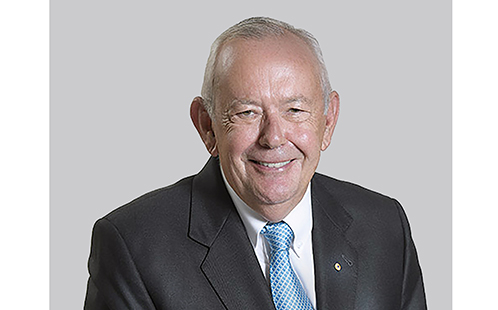Small and medium enterprises driving Western Sydney's economic growth

National accounting and advisory firm William Buck, in partnership with the University of Western Sydney, St. George Bank and the Western Sydney Business Connection, has released their recent research into Western Sydney businesses in the report 'Making Western Sydney Greater'.
The report, a collaborative endeavour between the four organisations, will be produced bi-annually to create a longitudinal study of business experiences in the region.
The third largest economic region in Australia behind Sydney and Melbourne, Western Sydney produces 38% of the overall Sydney GRP annually. The engine room behind this is SME Businesses.
Notably more buoyant in their economic performance than Large Businesses and the Region overall, SME Business expectations for both revenue and profit are 6% ahead of budget. This contrasts to Large Businesses, at 2.2% and 3.1% for revenue and profit respectively, and the GWS Region's expectation at 3.5% for both revenue and profit.
Matthew Kelly, St George Executive Manager for Western Sydney, says the report findings are positive for SME businesses in Greater Western Sydney.
"Out of all the business groups, SMEs were the risings stars showing the strongest financial performance, in particular those with a turnover of $2 - $30million, or with 10 to 50 employees," he says.
Western Sydney SMEs are also the most positive in respect of their employment intentions. Unlike the GWS region, which has 0.0% anticipated growth for full time employment, or Large Businesses which anticipate a reduction by 1.7% in full time employment, SMEs intend to grow their full time workforce by 2.3%. The positive employment intention of SME Businesses is consistent with their revenue and profit target expectations, and again indicates their strength in the Western Sydney region.
The Director of Engagement at the UWS School of Business, Warren Day, says the findings confirm that Greater Western Sydney is driven by the SME sector.
"This study shows the Small and Medium sized Enterprise sector is vital for our future and for the future of the Australian economy," he says.
Greg Travers, Director at William Buck, says State and Federal governments have earmarked Greater Western Sydney as a major focus area for growth, but for this is to be achieved, SME businesses need to be supported.
"SMEs will be the engine room for regional growth," he says.
"A focused strategy to support SME Businesses with local procurement and training will be the most effective way to drive the development of the Western Sydney economy."
Using the current opportunities of major projects, such as the 'Badgerys Creek Airport', the region has a once in a generation opportunity. With a detailed plan for Western Sydney's development and growth in place, the skills and attributes of the workforce needed can be identified. Businesses in the region can then be supported to invest in their employees and develop these skills and capabilities in a targeted way.
According to Michael Sugg, CEO of Western Sydney Business Connection, local procurement combined with employee skills development will be an effective way to drive growth and development of the Western Sydney economy.
"On the back of this research, and further research with our members, WSBC would like to see procurement processes leveraged to provide sustainable outcomes for the region and consider further legislation on local procurement for long term support of business in the region," he says.
"To maximise the benefits for the region and ensure that businesses achieve their full growth potential, opportunities need to be capitalised on, and impediments also need to be addressed."
The major impediments identified for SMEs are employment related regulations and payroll and employment taxes. These issues are of particular significance to SMEs as these businesses are outside the exemptions and are transitioning into the more complex workplace regulation, payroll tax, OH&S, etc. regulations. Where Large Businesses are already entrenched in employment related regulations and payroll taxes, and do not as strongly identify these issues are key impediments to their businesses, and Micro Businesses are often exempted from the rules, it's SMEs that experience the brunt of these regulations.
Greg Travers says the solution is obvious.
"If the government were to revise the phase in of employment laws for businesses – beyond the existing exemptions – it would be immensely beneficial," he says.
"Additionally, SME Businesses are the ones that are entering the payroll tax system. A higher threshold when businesses enter the system and a lower or progressive rate of tax once in the system should all be considered.
"This would act as a real boost to these businesses, with flow on benefits to the broader economy."
The Making Western Sydney Greater report is available through William Buck.
If you are would like to participate in the next survey, contact research@williambuck.com
The most recent report drew from the responses of over 200 business owners and senior managers from Western Sydney. Spokespeople from each organisation are available for comment.
All partners of this research look forward to collaborating further on the next survey and working together to support Western Sydney industry.
Ends
3 March 2015
Latest News

Opinion: What do we lose when our old suburbs disappear?
I live on the edge of Parramatta, Australia’s fastest-growing city.

Opinion: Most bees don’t die after stinging – and other surprising bee facts
Most of us have been stung by a bee and we know it’s not much fun. But maybe we also felt a tinge of regret, or vindication, knowing the offending bee will die. Right? Well, for 99.96% of bee species, that’s not actually the case.

Western Sydney University receives transformational donation to support LGBTIQA+ community
Western Sydney University has welcomed a philanthropic donation from The Brennan Lynch Foundation.
Mobile options:

